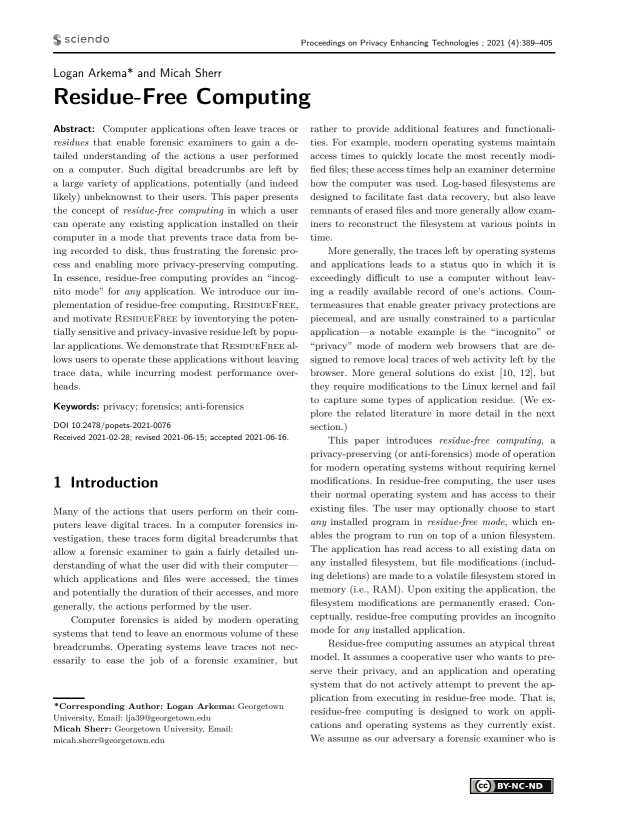Residue-Free Computing
Authors: Logan Arkema (Georgetown University), Micah Sherr (Georgetown University)
Volume: 2021
Issue: 4
Pages: 389–405
DOI: https://doi.org/10.2478/popets-2021-0076
Abstract: Computer applications often leave traces or residues that enable forensic examiners to gain a detailed understanding of the actions a user performed on a computer. Such digital breadcrumbs are left by a large variety of applications, potentially (and indeed likely) unbeknownst to their users. This paper presents the concept of residue-free computing in which a user can operate any existing application installed on their computer in a mode that prevents trace data from being recorded to disk, thus frustrating the forensic process and enabling more privacy-preserving computing. In essence, residue-free computing provides an “incognito mode” for any application. We introduce our implementation of residue-free computing, ResidueFree, and motivate ResidueFree by inventorying the potentially sensitive and privacy-invasive residue left by popular applications. We demonstrate that ResidueFree allows users to operate these applications without leaving trace data, while incurring modest performance overheads.
Keywords: privacy; forensics; anti-forensics
Copyright in PoPETs articles are held by their authors. This article is published under a Creative Commons Attribution-NonCommercial-NoDerivs 3.0 license.


